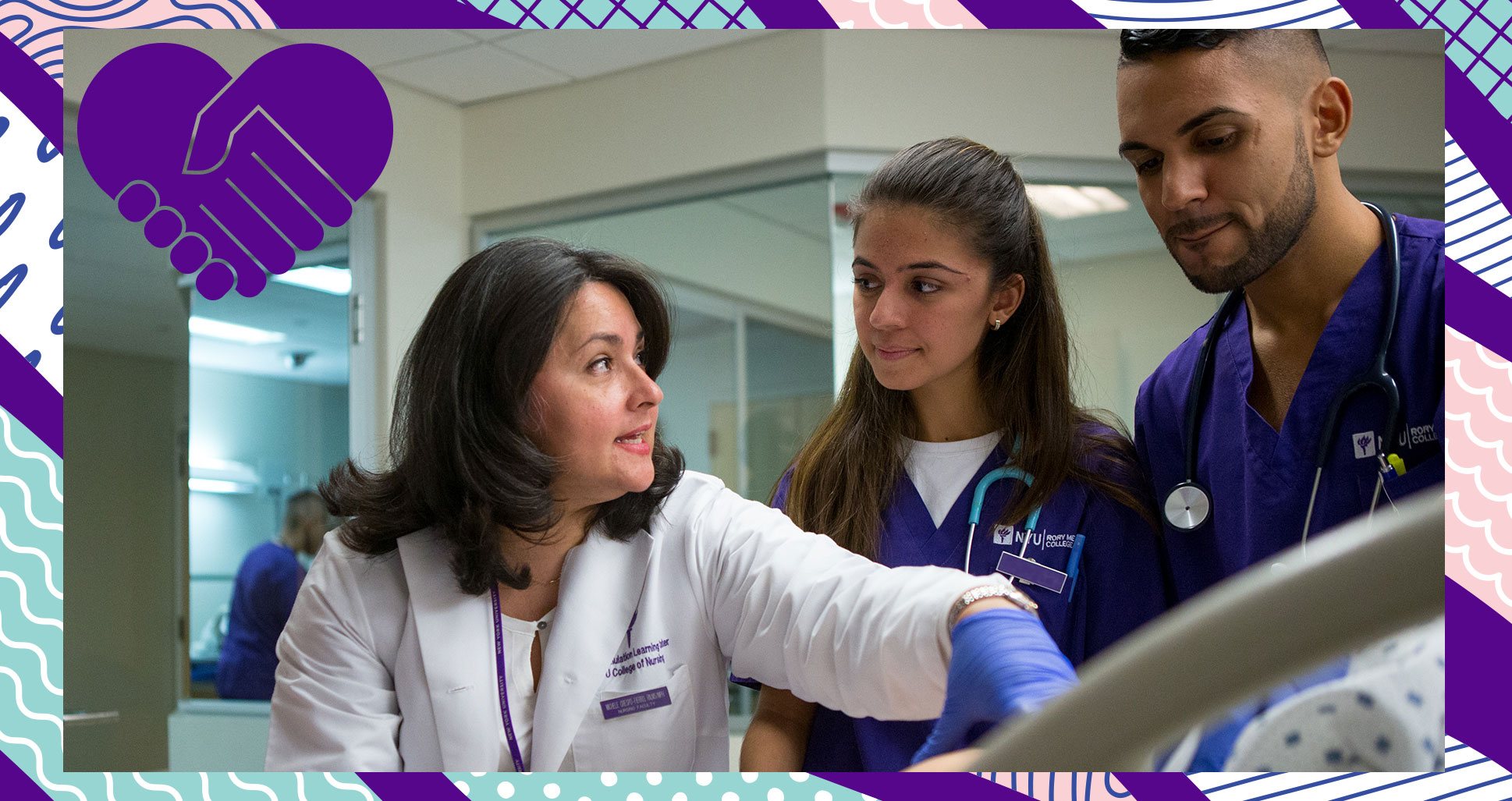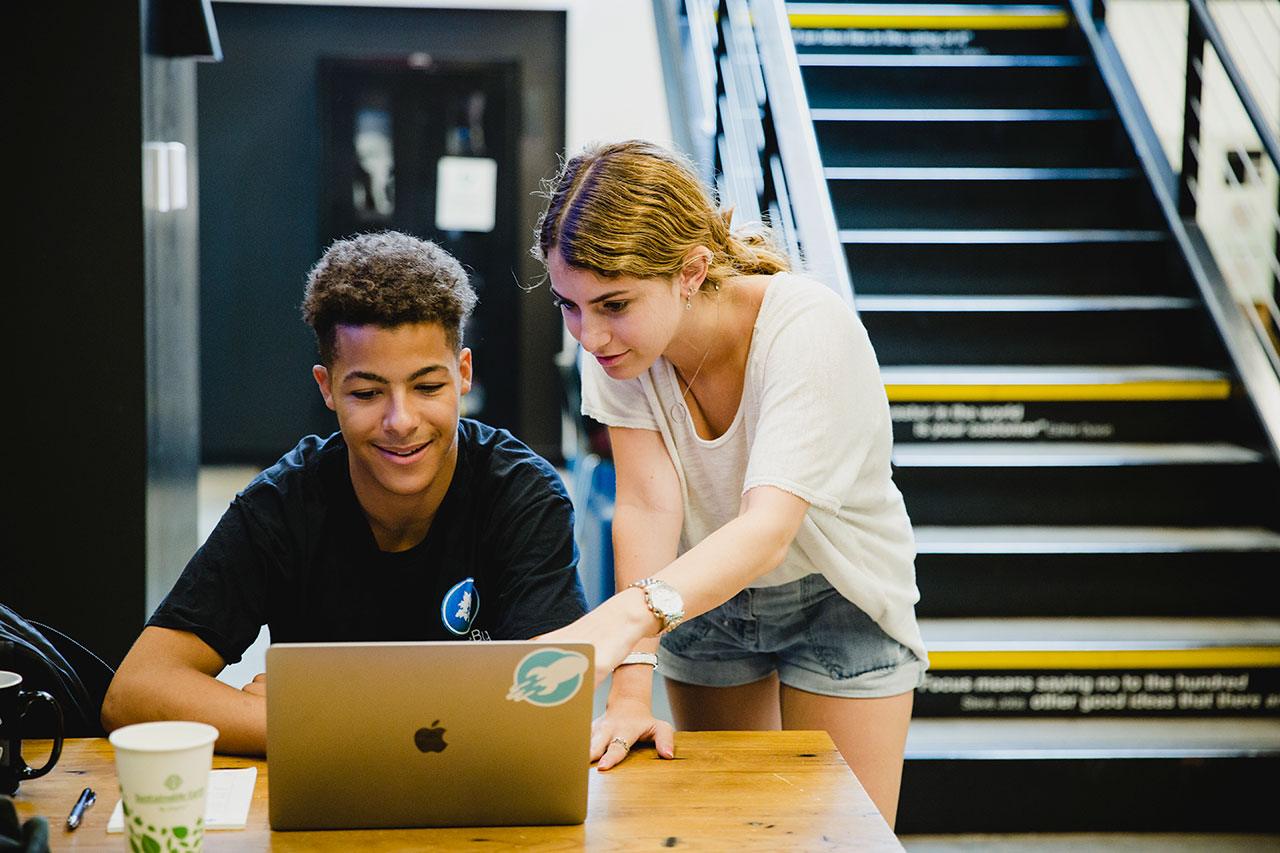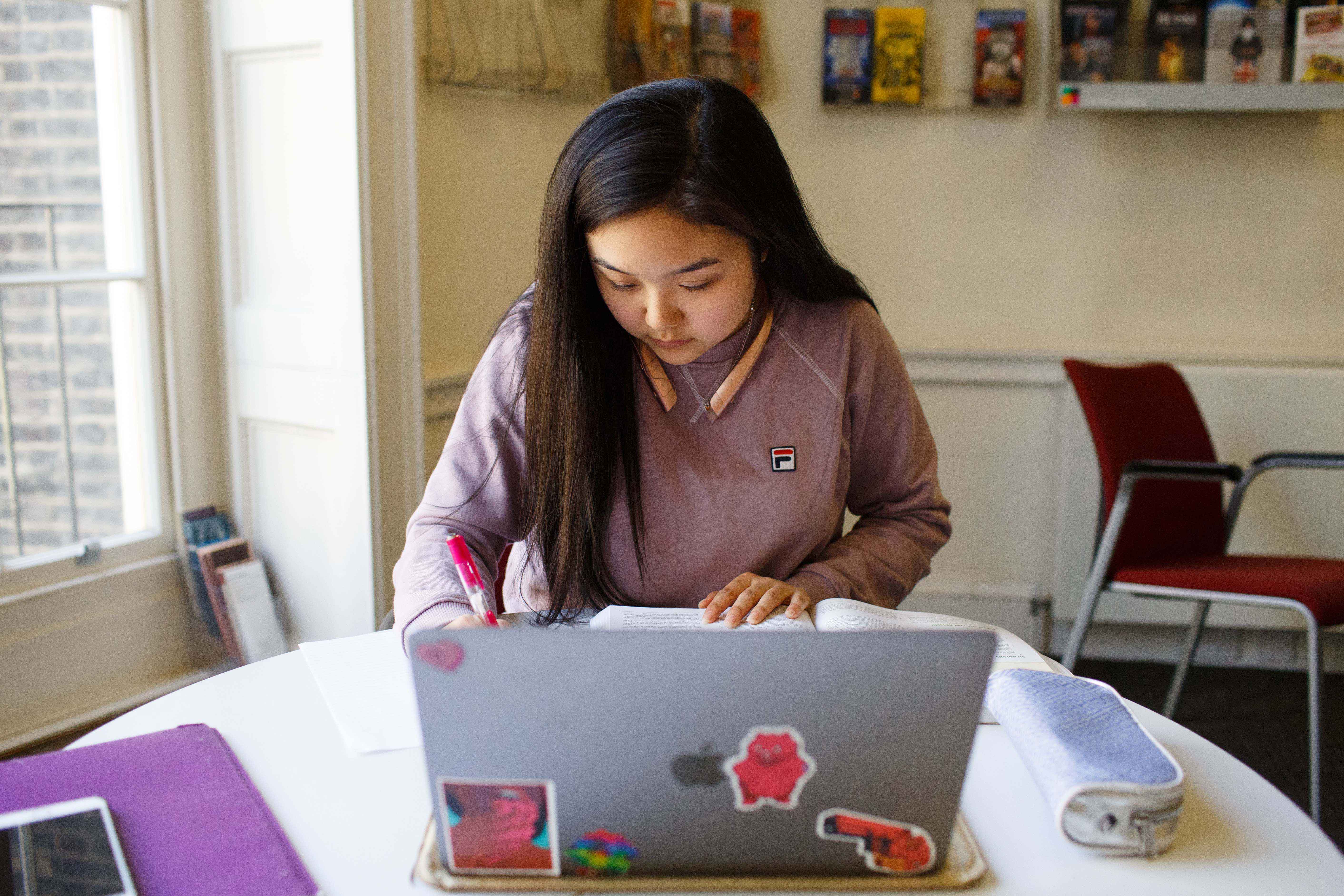The COVID-19 pandemic made it absolutely clear that nurses are indispensable. And at the NYU Rory Meyers College of Nursing, future nurses acquire the skills they need to provide patients with the best holistic care possible, regardless of the global context.
During the first few semesters of the traditional four-year nursing program, students take a range of liberal arts courses alongside their prerequisite nursing courses in chemistry, microbiology, anatomy and physiology, nutrition, and statistics. Through the completion of courses in both the liberal arts and sciences, they develop the critical thinking and communication skills they need to thrive as registered nurses after graduation.
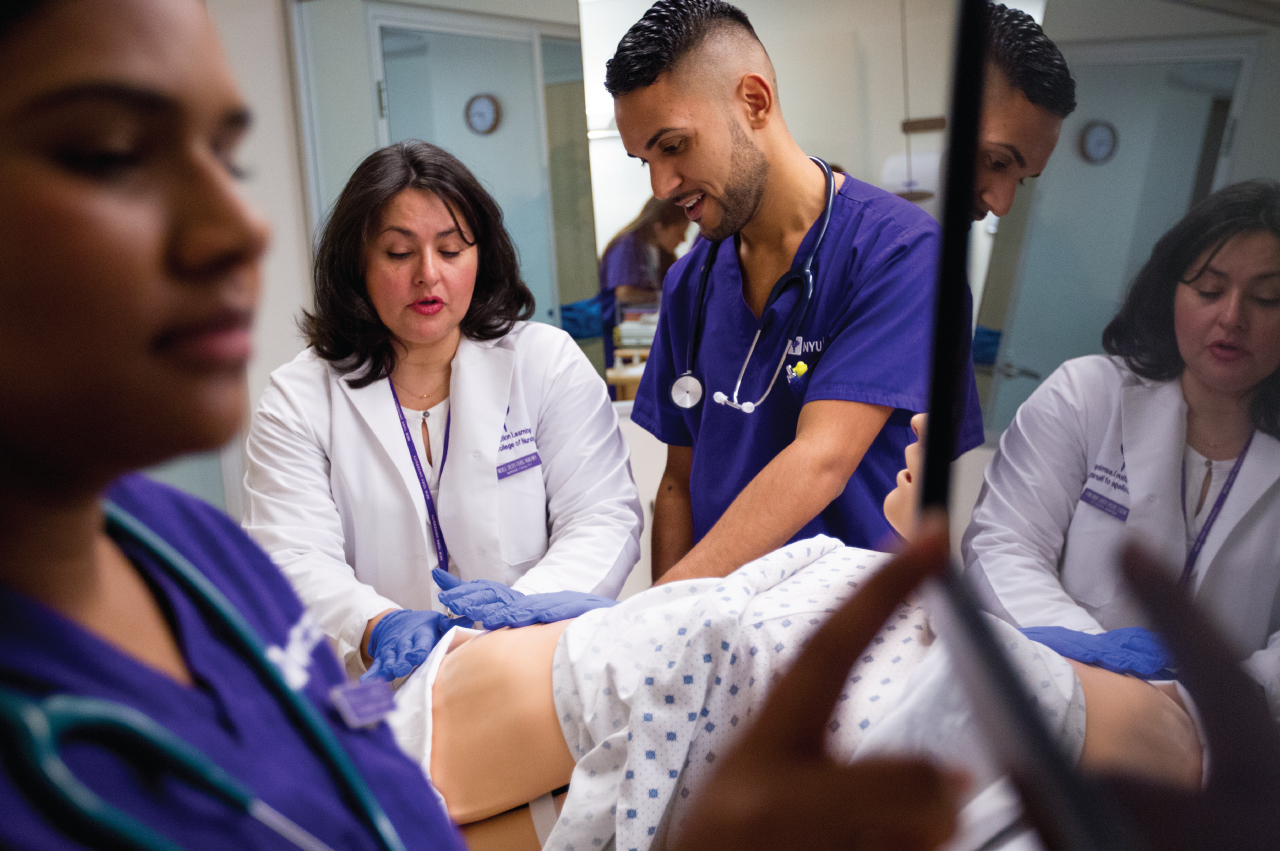
Esteemed Professors at the Top of Their Field
For many students at NYU Rory Meyers, the faculty members surpass all expectations. “My favorite part about the nursing program at NYU is the opportunity to build unique relationships with esteemed faculty who are all eager to help us further our careers,” says senior Alicia Balchand. “They’re dedicated to helping us develop the fundamental skills, principles, and theories we need to provide patients with care in everyday life. In doing so, they meticulously arrange all components of instruction to maximize our learning from multiple perspectives.”
Studying Abroad as a Nursing Major
Nursing students have a demanding course load. But that doesn’t mean they can’t explore academically and gain global experience. At NYU, the nursing program is specifically designed to accommodate studying abroad. Nursing courses begin junior year, so students can study abroad their sophomore year at an NYU global site. While abroad, students can complete their liberal arts requirements. That way, when they return, they’re more prepared to tackle their nursing courses.
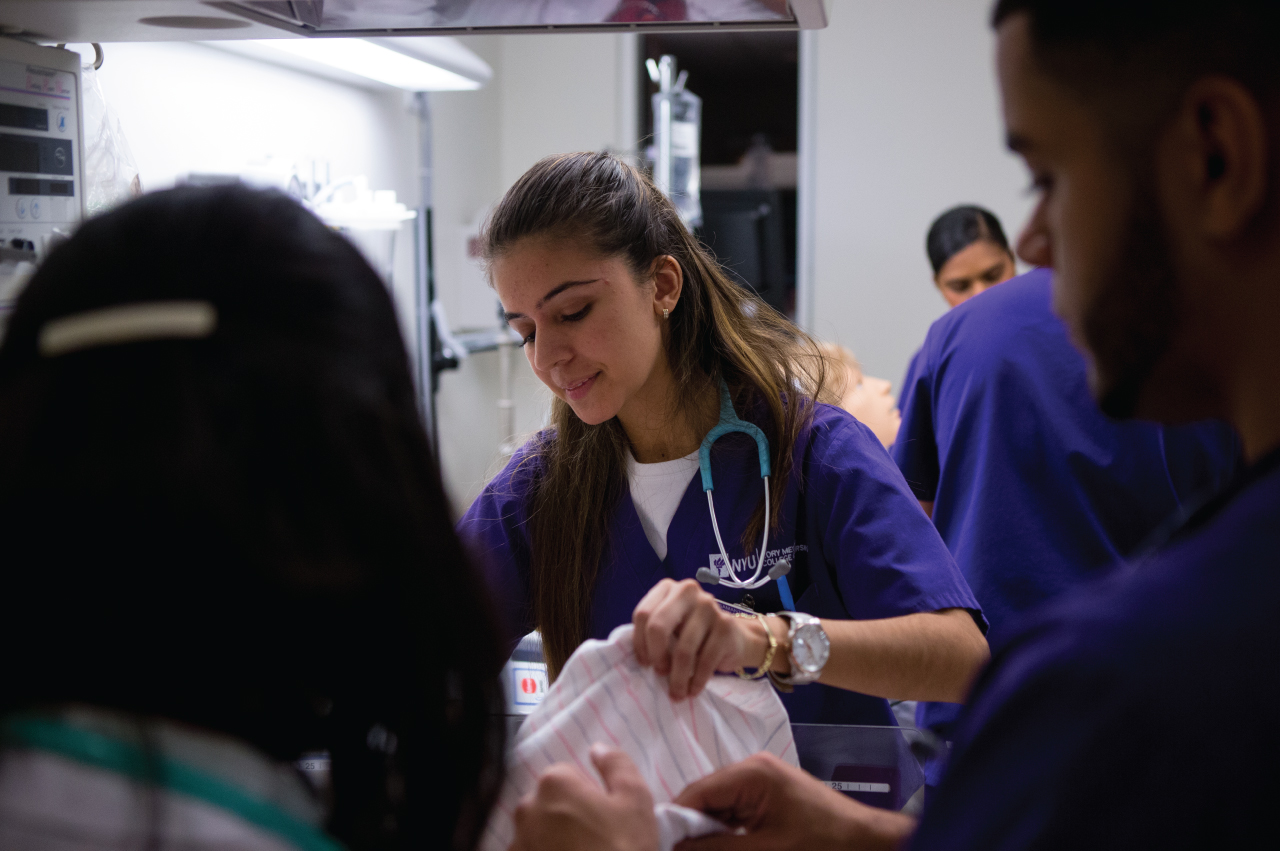
Clinical Experience Inside and Outside of the Classroom
When they begin their nursing classes, students have access to some of the most renowned health-care facilities in the world. Depending on their interests, students can complete their clinical rotations at places like Tisch Hospital or the Rusk Rehabilitation Center. They can also work with professionals at local primary care practices, birthing centers, community mental health centers, or hospices.
For even more hands-on experience, students can solidify their skills and knowledge in the Clinical Simulation Learning Center (CSLC). This lab setting has life-like mannequins that can breathe, blink, answer questions, and even give birth. In the CSLC, students learn how to assess and respond to real-world scenarios in a low-stakes environment. “The CSLC has been one of the best resources Iʼve used in the nursing program,” says Alicia. “It helped me master basic clinical skills with the use of computerized mannequins, standardized patients, task trainers, and other high-tech hospital equipment. Each simulation session urged me to use clinical judgment, knowledge, communication, and teamwork skills in environments that mimic real-life situations.”
Preparing for Life as a Future RN
Equipped with a well-rounded education, travel opportunities, undeniable connections, and unparalleled clinical experiences, NYU nursing students have the knowledge and skills they need to pass their licensure exam after graduation. “The nursing program prepared me in many ways for my future as an RN,” says senior Amberlynn Pantoja. “I’m learning the necessary lessons to pass my NCLEX. I’m receiving hands-on experiences at amazing hospitals and the CSLC, where I can practice skills with instructors. I have access to a large alumni network that allows me to connect with people working in just about every area of the health-care field. And the faculty—they’re my favorite part of the program. They’re challenging professors. But they care so deeply about each and every one of us.”

